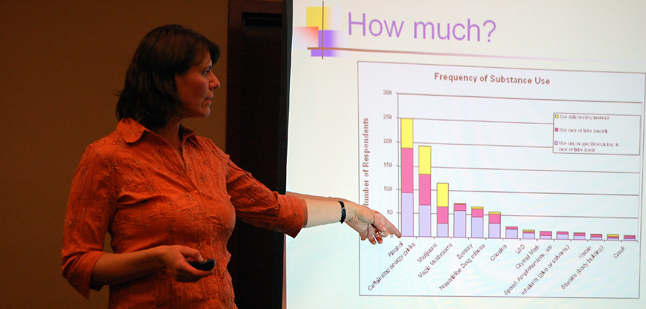
By David F. Rooney
As Revelstoke evolves into a resort community its citizens need to be aware that the transformation would have a dark side — more visible signs of drug and alcohol abuse.
Go to Whistler or Banff and you can see that dark side up close: heavy partying, arrests for public drunkenness, drug possession and trafficking are pretty common. There’s more violence, too. People in resort communities, it seems, appear to act as though they are at a party where the rules of civilized behaviour have been suspended. Sure, there are assaults in Revelstoke and people do get scooped by the RCMP for being drunk and disorderly, driving while intoxicated and for drug possession and trafficking, etc. But the numbers here are very small.
That should be a concern to any thinking person, but finding ways to address it is not as simple as it sounds. That’s why the City’s Social Development Committee is exploring the possibility of establishing a Drug and Alcohol Strategy.
At a public meeting held at the Community Centre Thursday evening, a small group of people discussed some of the issues and watched a film, Closing the Gateway, about the dangerous effects of drug abuse on teens.
“What can we do better as a whole community?” asked Social Development Coordinator Jill Zacharias.
More policing might seem like an obvious answer to some people but as Staff Sgt. Jacquie Olsen put it: “Policing is not just up to the RCMP, it’s up to a community as a whole.”
And that could be a problem. Judging by attendance at the meeting — just 20 people — there was very little public interest in this discussion. Of the 20 people who were there three were from City Council, two were school board trustees, two were journalists, one was a police officer and at least three were involved in social work or mental health. There was one family present with their two children but they left before the end of the meeting.
It will come as no surprise to anyone to hear that local teens do experiment with booze and drugs but how many of them do it? And why?
Members of the audience identified boredom, peer pressure, a desire to be popular, poor role modelling by significant adults such as parents and other family members, curiosity and other factors as possible reasons kids try alcohol and drugs.
Zacharias and Lori Borges conducted a survey among RSS students that found 78 per cent of respondents had tried alcohol, 38 per cent had tried tobacco, 36 per cent marijuana, 19 per cent psychedelic mushrooms, 18 per cent, XTC, five per cent cocaine, four per cent LSD, three per cent meth-amphetamines and two per cent crack cocaine. Their answers to two other questions were interesting, too. While many kids said they had been in a vehicle when the driver had been drinking, 95 per cent said they had never driven while intoxicated.
If true, that’s a good thing.
“In the 1970s we had at least one or two deaths per year from drinking and driving,” Zacharias said. “You just don’t see that anymore.”
That’s doubtless due to better education, highly publicized media campaigns and targeted policing. That same approach — particularly if there is an educational and media focus on helping teens adopt good decision making and coping skills, could well be useful here.
“If you never know what healthy coping skills are you’re to be reaching for what you know best — the quick fix in a can or in a bottle,” said participant John Teed.



